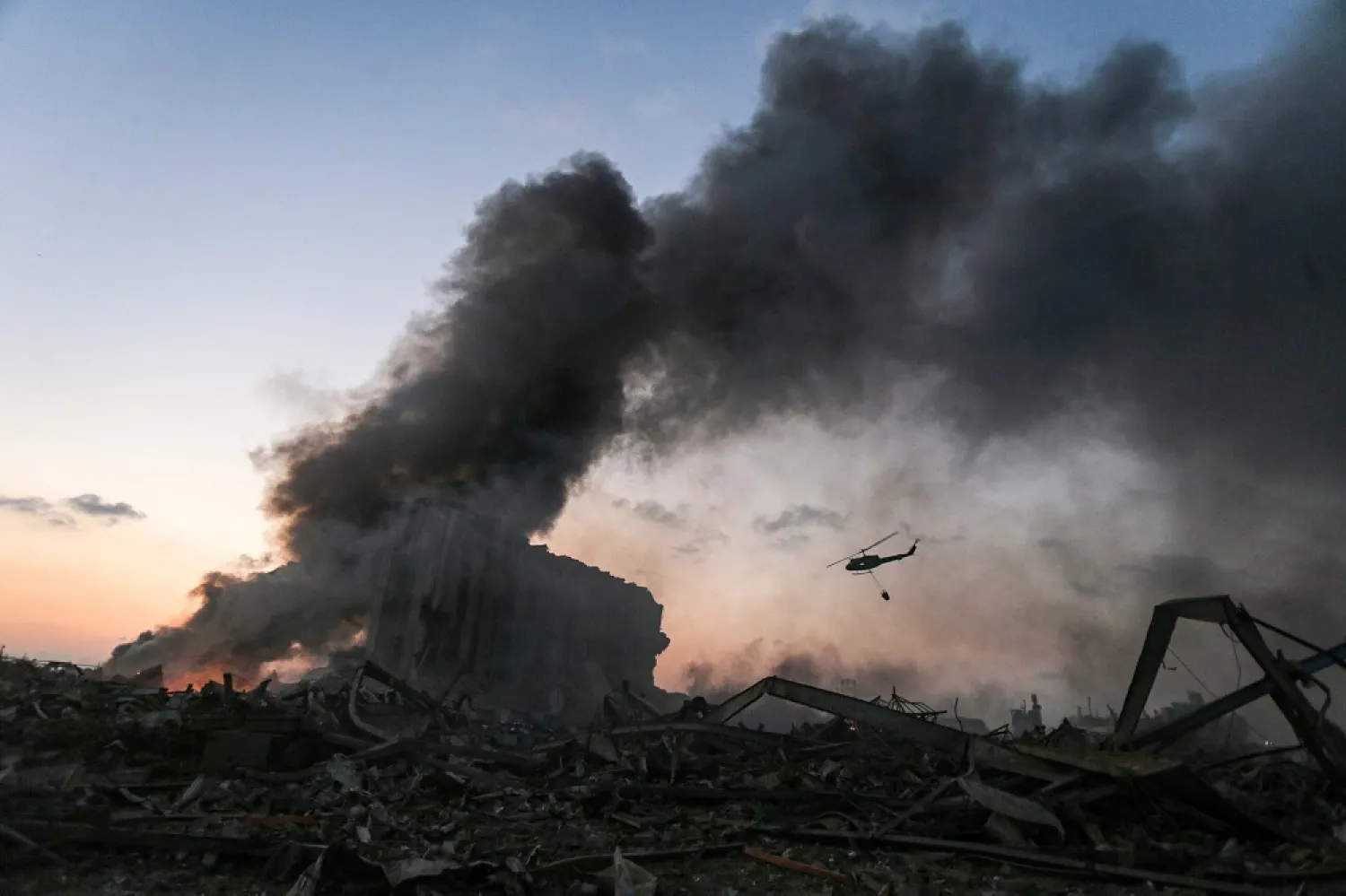Initial investigations indicate years of inaction and negligence over the storage of highly explosive material in Beirut port caused the blast that killed over 100 people on Tuesday, an official source familiar with the findings said.
The prime minister and presidency said on Tuesday that 2,750 tons of ammonium nitrate, used in fertilizers and bombs, had been stored for six years at the port without safety measures.
“It is negligence,” the official source told Reuters, adding that the storage safety issue had been before several committees and judges and “nothing was done” to issue an order to remove or dispose of the highly combustible material.
The source said a fire had started at warehouse 9 of the port and spread to warehouse 12, where the ammonium nitrate was stored.
Tuesday’s explosion was the most powerful ever suffered by Beirut, a city that is still scarred by civil war three decades ago and reeling from a deep financial crisis rooted in decades of corruption and economic mismanagement.
Badri Daher, Director General of Lebanese Customs, told broadcaster LBCI on Wednesday that customs had sent six documents to the judiciary warning that the material posed a danger.
“We requested that it be re-exported but that did not happen. We leave it to the experts and those concerned to determine why,” Daher said.
Another source close to a port employee said a team that inspected the ammonium nitrate six months ago warned that if it was not moved it would “blow up all of Beirut”.
According to two documents seen by Reuters, Lebanese Customs had asked the judiciary in 2016 and 2017 to ask the “concerned maritime agency” to re-export or approve the sale of the ammonium nitrate, removed from the cargo vessel, Rhosus, and deposited in warehouse 12, to ensure port safety.
One of the documents cited similar requests in 2014 and 2015.
“A local and international investigation needs to be conducted into the incident, given the scale and the circumstances under which these goods were brought into the ports,” said Ghassan Hasbani, former deputy prime minister and a member of the Lebanese Forces party.
Shiparrested.com, an industry network dealing with legal cases, had said in a 2015 report that the Rhosus, sailing under a Moldovan flag, docked in Beirut in September 2013 when it had technical problems while sailing from Georgia to Mozambique with 2,750 tons of ammonium nitrate.
It said that, upon inspection, the vessel was forbidden from sailing and shortly afterwards it was abandoned by its owners, leading to various creditors coming forward with legal claims.
“Owing to the risks associated with retaining the ammonium nitrate on board the vessel, the port authorities discharged the cargo onto the port’s warehouses,” it added.









